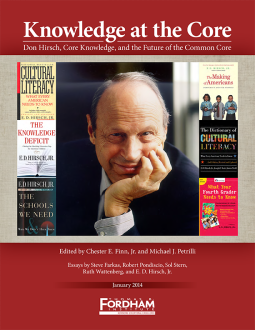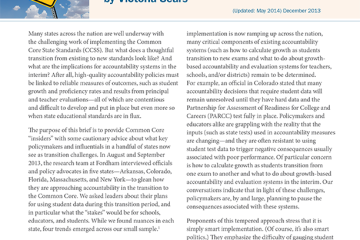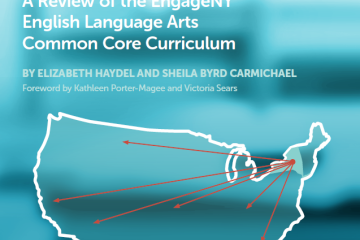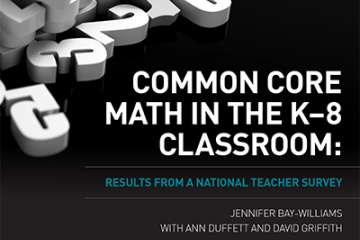Children cannot be truly literate without knowing about history, science, art, music, literature, civics, geography, and more. Indeed, they cannot satisfactorily comprehend what they read unless they possess the background knowledge that makes such comprehension possible. Yet most American primary schools have been marching in the opposite direction: treating reading only as a “skill” and pushing off history, science, art, and music “until later.”
This problem grows more serious with the advent of the Common Core State Standards for English Language Arts, which take for granted that children expected to meet those standards are being supplied with a content-rich curriculum. In far too many U.S. schools, however, that is simply not happening.
So what should we do?
Commit to implanting a sequential, content-rich curriculum in the country’s elementary and middle schools.
The essays in Knowledge at the Core: Don Hirsch, Core Knowledge, and the Future of the Common Core restate the case for such a curriculum and chart a course for the future. They also pay tribute to the decades of scholarship, service, and reform commitment of E. D. (Don) Hirsch, Jr., author of Cultural Literacy (and three other prescient books on education reform) and founder of the Core Knowledge Foundation.
DOWNLOAD Knowledge at the Core: Don Hirsch, Core Knowledge, and the Future of the Common Core as an eBook.
Kindle Download (.mobi) - Instructions on how to add the e-book to your Kindle
WATCH selected panels and speeches from "A tribute to the work of E. D. Hirsch, Jr." that took place on December 4, 2013 at the Carnegie Library in Washington D. C.
Opening remarks by Sol Stern
The state of Core Knowledge: past and present
Accelerating the adoption of content-rich curricula
Keynote address by E. D. Hirsch, Jr.
____________
If you have questions about the book, please email Amber Northern.



